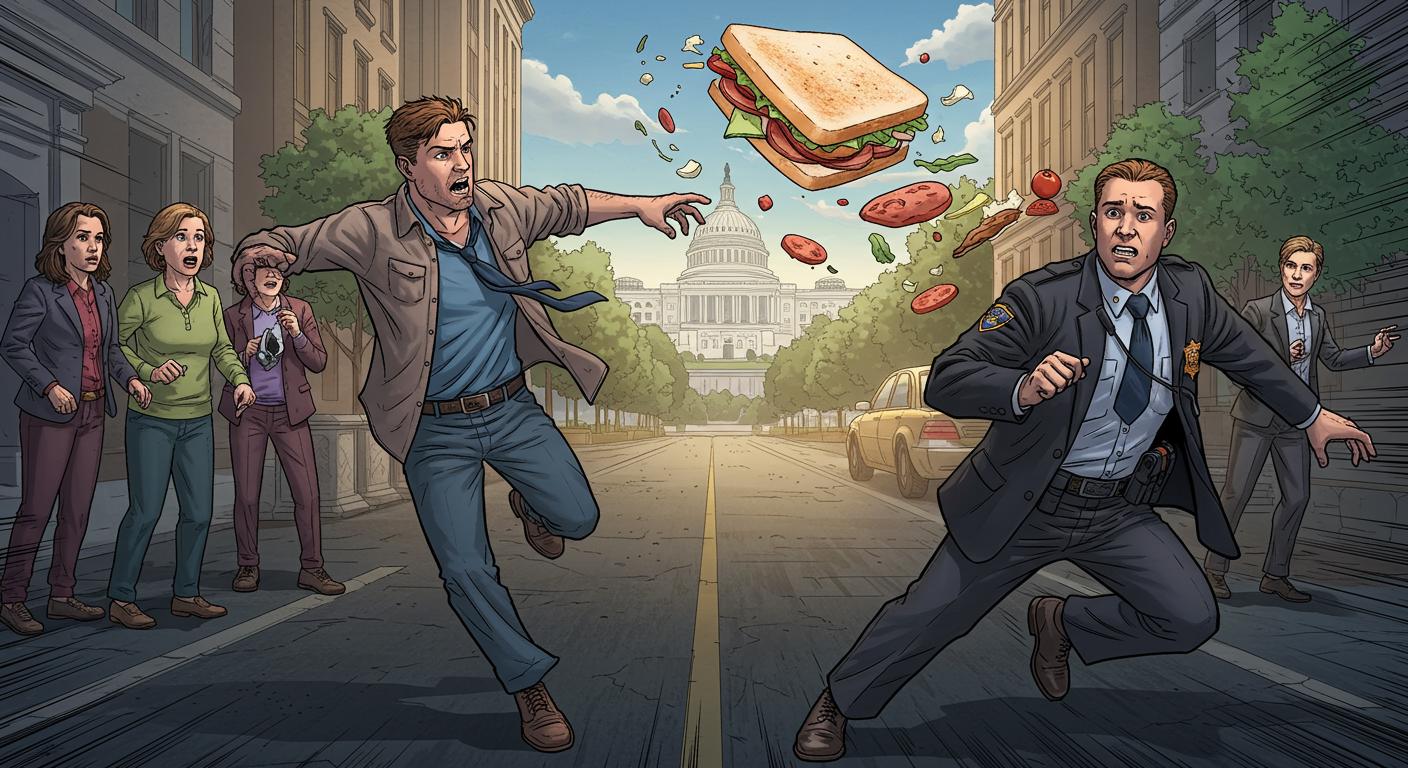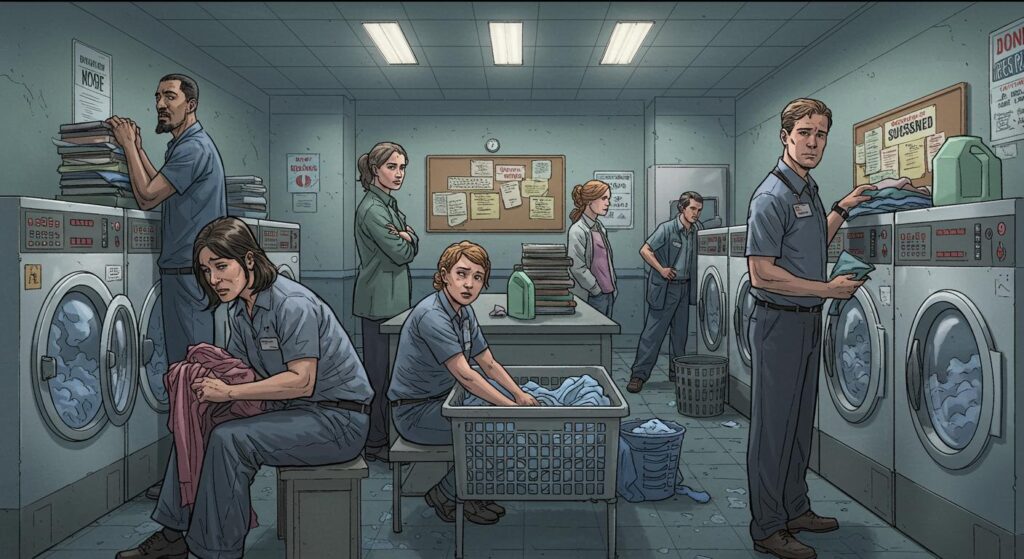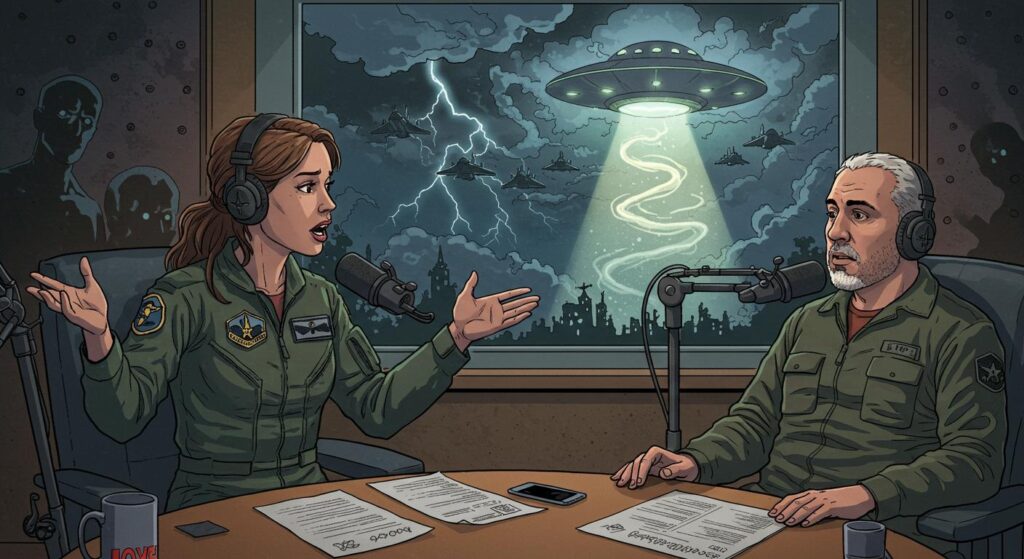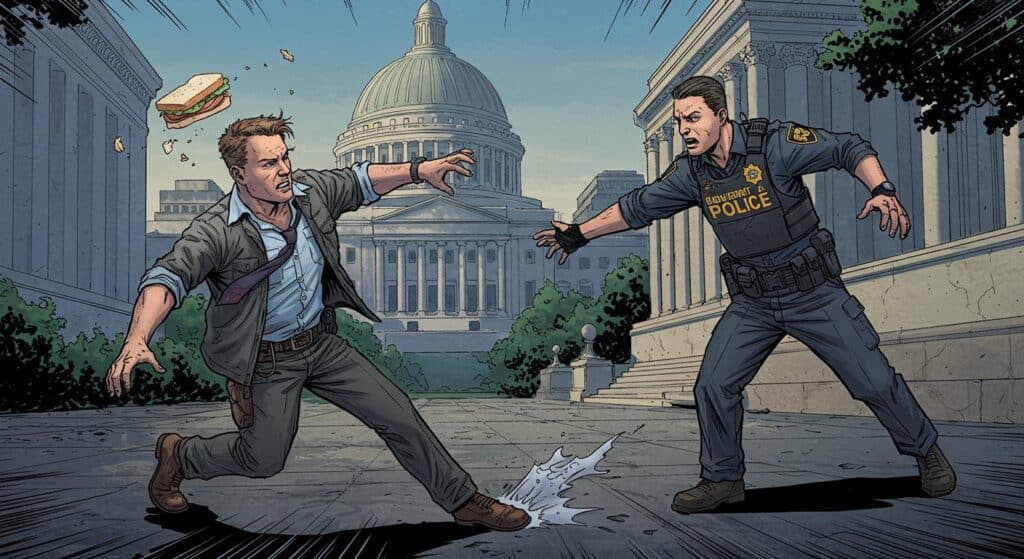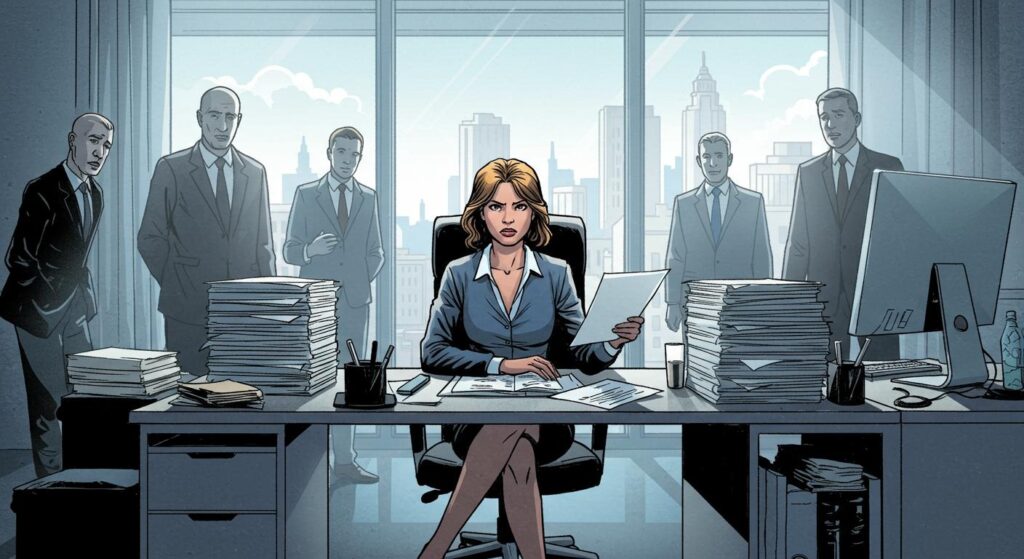There’s a certain hierarchy in the annals of food-related altercations. We’ve seen pies in faces, eggs tossed from balconies, and the occasional rogue tomato meeting an unfortunate politician. Yet even by those modest standards, what unfolded this week on the streets of Washington, D.C., is a sandwich of a different sort.
Sean Charles Dunn, 37, of D.C., is now facing federal assault charges—not for brandishing a weapon in the conventional sense, but for reportedly launching a sub-style sandwich at a U.S. Customs and Border Protection agent, according to a court filing highlighted by PBS NewsHour. The filing describes how Dunn approached a group of agents, directed a finger toward one officer, shouted accusations of “fascist” at them, and punctuated his statements by flinging his lunch at the agent’s chest. Video reviewed by police and referenced in the affidavit appears to capture this critical (if unconventional) moment, before Dunn attempted a less-than-successful escape on foot.
Crime, Context, and Cold Cuts
While the act itself lands squarely in the bizarre, the surroundings are steeped in real political friction. Stringent security measures and an influx of federal officers had been rolled out in the capital, as detailed in coverage from The Hill. These measures came as part of President Trump’s declaration that the city faced a crime emergency—a claim challenged by local officials who, as PBS NewsHour documents, point to a 30-year low in violent crime statistics.
Events escalated on Sunday evening, with police records cited by both outlets indicating that Dunn singled out the officers and declared, “Why are you here? I don’t want you in my city!” before resorting to his edible method of protest. The local court complaint, as paraphrased by The Hill, also notes that onlookers captured the scene on video, including the sandwich’s brief but headline-making flight.
When Lunch Becomes Contraband
Authorities confirmed to The Hill that Dunn was apprehended and charged with assaulting, resisting, or impeding certain officers or employees—a felony, in this instance. Addressing the incident in a video statement posted on X, U.S. Attorney for the District of Columbia Jeanine Pirro remarked that, “He took a Subway sandwich about this big and took it and threw it at the officer. He thought it was funny.” Pirro then added, “Well, he doesn’t think it’s funny today because we charged him with a felony, assault on a police officer, and we’re going to back the police to the hilt. So there, stick your Subway sandwich somewhere else.” The outlet also notes that online court records did not list an attorney for Dunn at the time of reporting.
What stands out in this saga isn’t just the act (as unorthodox as it is)—it’s the context from which it arises. D.C.’s landscape, reshaped this month by National Guard units and a charged debate over who controls local policing, now has the ignominious addition of a weaponized sandwich. Perhaps, in 2025, this makes more sense than we’d like to admit.
Parsing Intent and Indignation
Described in coverage by PBS NewsHour, the incident unfolded amid protest and heightened tensions about the federalization of local law enforcement—an arrangement that city officials have described as unsettling. Choosing a sandwich as an instrument of protest may seem almost symbolic: an act designed to be attention-grabbing and (at least by physical standards) nonlethal, but with legal consequences that prove much less toothsome.
It’s a scenario that forces us to consider how quickly outrage can escalate, especially when deli meats and high political drama are both in oversupply. What would the chroniclers of American protest make of a moment when lunch became a statement? Is this the shape of modern civil disobedience—one mozzarella-slicked gesture at a time?
Summary: Between Revolution and Reuben
At the crossroads of the peculiar and the profound, D.C.’s sandwich episode offers a memorable morsel about the excesses and eccentricities of our current moment. Felony charges for an airborne lunch aren’t everyday fare, but they illustrate just how porous the line is between the gravely serious and the absurdly farcical.
Is it disproportionate to face federal prosecution for flinging a sub? Or is this simply another outgrowth of the uniquely American collision between protest and public order, right here in the capital? Even future generations—be they legal scholars or sandwich shop patrons—may wonder how a fast food toss became a federal case, and what it says about the times we’ve constructed.
In the end, these oddities linger because they say something about both the letter of the law and the state of society. The sandwich was intercepted, but the questions remain, layered and a bit slippery, just like the best stories.

